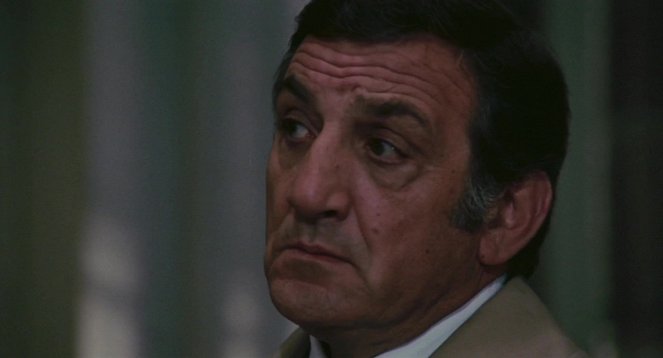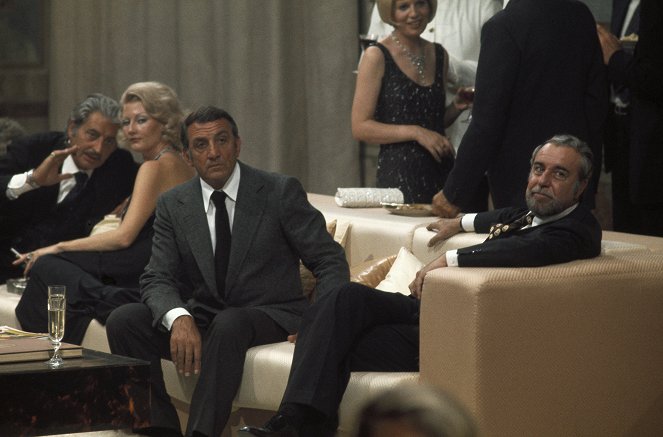Regie:
Francesco RosiKamera:
Pasqualino De SantisMusik:
Piero PiccioniBesetzung:
Lino Ventura, Max von Sydow, Charles Vanel, Fernando Rey, Tino Carraro, Renato Salvatori, Luigi Pistilli, Marcel Bozzuffi, Paolo Bonacelli, Alain Cuny (mehr)Inhalte(1)
Als der gefürchtete Staatsanwalt Varga auf offener Straße erschossen wird, übernimmt Inspektor Rogas die Ermittlungen. Bald darauf werden zwei hohe Richter ermordet, wieder mit derselben Waffe. Rogas vermutet, dass es sich in allen Fällen um einen Racheakt handelt. Er macht drei Verdächtige ausfindig; alle wurden für Delikte verurteilt, die sie abgestritten haben, und an jedem Prozess waren die nunmehr Ermordeten beteiligt. Zwei der Verdächtigen muss Rogas allerdings rasch wieder von seiner Liste streichen. Bei dem dritten dagegen glaubt er, auf eine heiße Spur gestoßen zu sein. Dieser Mann ist untergetaucht und merkwürdigerweise existiert nirgendwo mehr ein Foto von ihm. Ein vierter Mord bestärkt den Inspektor in seinem Verdacht, dann aber scheint sein Indiziengebäude auf einmal zusammenzubrechen. Rogas wird von seinen Vorgesetzten zurückgepfiffen, er hält es jedoch für seine Pflicht, wenigstens noch den Gerichtspräsidenten Riches zu warnen, der nach seiner Ansicht auch gefährdet ist. Bei diesem Besuch macht der Inspektor eine Beobachtung, die ihn die Mordserie in einem ganz neuen Licht sehen lässt. Seine Erkenntnis ist tödlich. (Verleiher-Text)
(mehr)Videos (2)
Kritiken (1)
The opening scene in the crypt of the ossuary and the subsequent assassination clearly entice, and the director sets the bar high and makes it known that the presence of the star Ventura will not be his only advantage. This is a film that respects the atmosphere and has style. However, its weakness lies in the script. The murders of high-ranking judicial officials are not investigated by a team of well-equipped specialists from the criminal investigative team, as one would expect in a politically exposed case, but rather by a lonely commissioner equipped with a pencil and a notebook. Until about halfway through, the drama represents a more or less classic narrative about a criminal case, which, despite detours and minor problems, leads to a specific culprit and the resolution of the case. However, then the director changes gears and we find ourselves in a world of conspiracy theories and hints of complex and extensive conspiracies, and the film increasingly falls into paranoia, which culminates in a bloody question mark. The truth is that Francesco Rosi worked with very specific feelings of concern from the Italian left about the development inspired by Pinochet's coup in Chile, which took place just two years before the filming preparations. In the mid-70s, Italian society was indeed going through a protracted crisis of the political system and the economy, and the country was exhausted from strikes, demonstrations, and political assassinations. So, in terms of "feeling," Rosi's piece works, but in terms of content, it contains logical somersaults. If the commissioner argues with journalists and opposition MPs about essential evidence, then the viewer sees nothing but helpless perplexity and a growing sense of threat and loss of trust in the institutions on the part of the protagonist. If you want to give the film a chance, do not expect a film based on action or a film that provides significant revelations. But as a dark experience, it can work. Overall impression: 75%.
()


